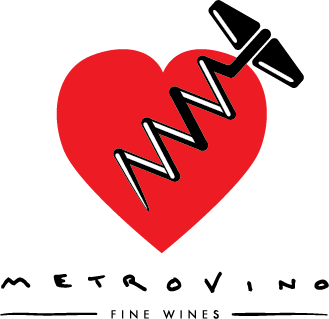by Isaiah Santos
This is a follow up to my previous journal entry:
Alberta’s New Wine Tax - Your wine is more expensive than it should be
Wine is Being Singled Out
https://aglc.ca/liquor/about-liquor-alberta/liquor-markup-rate-schedule
Above is the Liquor markup rate schedule that has been in effect since June 1, 2025. For each category (Spirits, Refreshment Beverages, Wine, and Beer) there is a flat standard markup based upon the ABV% (alcohol by volume) in the product. As a general rule, the lower the ABV%, the lower the standard markup rate. Wine is the sole exception. It not only has a standard markup, it is also subjected to the additional ad valorem markup — the newly imposed tax. This is what we take issue with, as no other category is subjected to this treatment. As a result, wine is being taxed more aggressively than all other liquor categories. Which begs the question, why only wine?
The table below denotes when the total tax on wine exceeds every other category:
The tax on a $63.25 wholesale bottle of wine exceeds a standard ABV% bottle of spirits.
The tax on a $19.25 wholesale bottle of wine exceeds all refreshment beverages.
The tax on a $16 wholesale bottle of wine exceeds all beer below 16% ABV.
Looking at these numbers, it is clear that wine experiences the highest degree of tax in Alberta’s liquor industry. This is without mentioning truly high value bottles of wine such as Dom Perignon where a single bottle is taxed $46! This is over twice the amount of tax a 60% ABV bottle of spirits sees, pushing retail prices to be among the highest not just in Canada but in North America.
Revenue Generation for the Province.
https://aglc.ca/sites/aglc.ca/files/2024-11/Annual-Report-%202023-2024.pdf
According to AGLC’s 2023-2024 Annual Report there were 397,887,000L of wine sold in Alberta. If the standard flat tax on just wine was increased by $0.55/L this would generate an additional $22 million in annual revenue for the province — in other words, the exact same amount of revenue as the ad valorem tax is anticipated to generate. We propose a switch to a raised standard flat tax instead of the ad valorem tax. On all standard 750mL bottles of wine this would equal a $0.40 increase; an agreeable increase. With this change wine would also be treated equal to all other liquor categories on the market.
“The Import Vintners and Spirits Association estimates [the ad valorem markup will result in] approximately $41 million in lost revenue across Alberta’s wine agency sector, along with a projected $6.3 million drop in provincial markup and excise tax revenue due to declining volumes.”
According to AGLC’s 2023-2024 Annual Report, a revenue loss of $41 million would equate to a decrease of 6.58% in revenue for the wine sector. This is an alarming loss especially when compared to the 2.78% increase in total liquor markup revenue (2% if we reference the $16 million the IVSA predicts). No matter how you look at it, a 2% increase for a 6.58% loss is not a good scenario. This is signalling the beginning of the death of Alberta’s wine industry.
An alternative would be to remove the ad valorem wine tax and increase the standard tax on wine by $0.55/L. This will generate $22 million in revenue while protecting the diversity and stability of Alberta’s wine market.
Here are additional resources discussing a similar situation in the UK where they raised duty on alcohol by 3.6% in an effort to increase revenue. Instead of generating revenue it resulted in a net loss of 4.3% on all alcohol, and 6% on the wine sector. If the goal is to make money for the province, an ad valorem tax will not succeed.
Destroying Small Businesses and Canadian Businesses.
The current ad valorem wine tax serves to reward industrially made wines that work in favour of large corporate entities. While 16% of the volume of wine is hit by the ad valorem tax, 94% of the SKUs (over 17000 products) are targeted by the tax. Large corporate entities that produce and sell low priced, industrial wine are less likely to be affected by this change, giving them a significant advantage. Meanwhile, small independently owned Albertan businesses are unable to compete with these giants as we simply cannot move stock at the same rate and prices. Our stake in the industry is completely dependent on the 94% of SKUs, the 16% of the market that is targeted. The diversity of products in our market is now being jeopardized, as many products are no longer viable due to significant price increases, catalysed by the ad valorem wine tax.
What we are calling for is an even flat tax equally distributed across all wine products. This results in equal treatment across all wine SKUs, levelling the playing field for both small and large businesses.
It is also worth noting that there is virtually no Canadian wine produced that is below $15/L wholesale, meaning that there is no Canadian wine that is free of the effects of the ad valorem wine tax.
Act in 2026, not in 2030.
The ad valorem wine tax is an unprecedented change in Alberta’s 30+ years of privatized liquor history. We have never had a system different to the standard flat tax rate. Therefore we are calling for this new ad valorem tax to be reviewed and revised a year after its effect. There are a plethora of small independent businesses in Alberta that will not be able to survive the 5 years before this change is reviewed. The continued erosion of businesses and wines in our province will lead to a sterile landscape where Albertans have little choice. This is detrimental to the livelihoods of Albertans both economically and culturally. The Albertan government is supposed to be pro-business, both small and large, and especially Albertan business; so show it.




